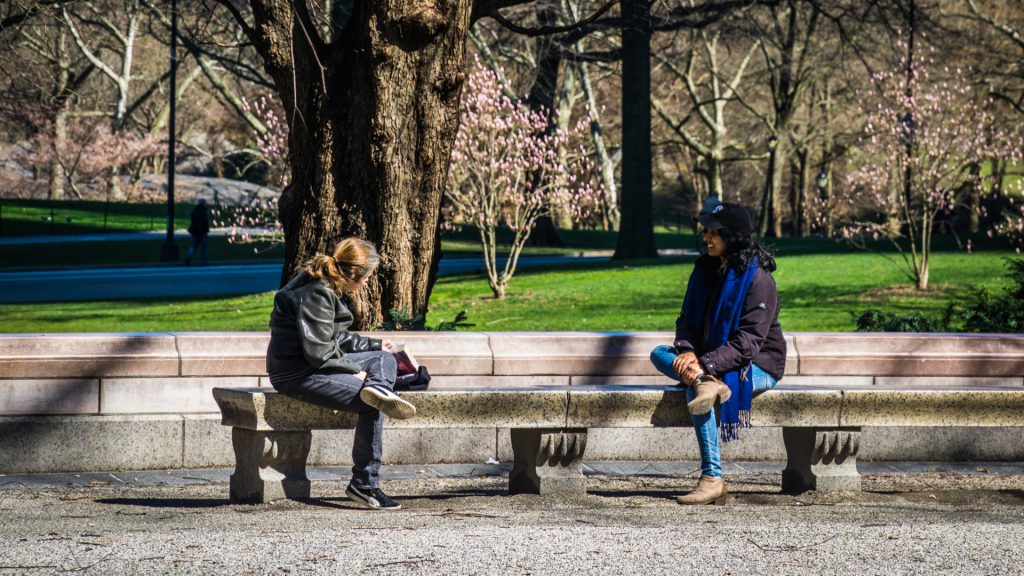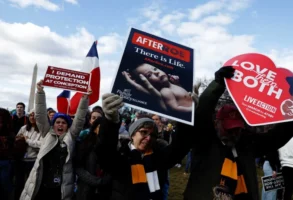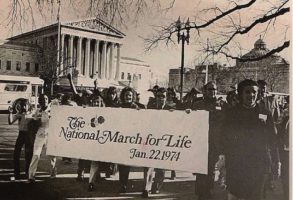
Published April 14, 2020
Someday, I hope in the not so distant future, the immediate threat of the coronavirus will have receded, and we will be able to reopen our cities and states and get back to the business of everyday life.
Many observers have said that the United States will never really go “back to normal” after a pandemic such as this one — not that we will never have daily lives resembling what they once did, but that the new normal will be different in significant ways. Some things very well could change for the worse.
It’s easy to imagine, for instance, that it will be difficult to reorient ourselves to shaking hands without grimacing, wondering what germs a new acquaintance might carry. How long will it take to feel as comfortable as we once were in a large crowd at a concert or sporting event? We will have to work hard, at least at first, to silence the alarm bells in our heads when we pass a neighbor on the sidewalk, to stop seeing other human beings as a threat.
But not every shift in our mindset will have been for the worse, and we can work to draw good out of this evil. For one thing, we are forming habits that we ought to practice already for the sake of general good health, such as frequent handwashing, and coughing or sneezing into a tissue or an elbow. Many Americans, including some of our leaders, will emerge from this disaster with a healthy skepticism of the deceptive authoritarian regime in China and of the supposedly expert guidance from nongovernmental groups such as the World Health Organization.
At a smaller level, it’s easy to envision how daily life might improve in some ways as a result of what we’ve been through. For Americans lucky enough to have a job they can perform from home, this period of necessary teleworking could convince employers to be more lenient with workers who have demonstrated the ability to accomplish tasks outside the office.
This temporary shutdown certainly has revealed the importance of human contact and in-person workplaces, but it has illustrated, too, that modern technology gives us the gift of flexibility. Perhaps in the future, some companies will see the good sense in permitting employees to spend a few weeks each year working remotely, whether to care for an ailing parent, or to help a grown daughter who has just given birth to her first child, or even to enjoy the weather in another part of the country.
An increase in tolerance for teleworking would also help young parents. Think of a father who might work from home on some afternoons so he can make it to his son’s Little League games; picture a mother who would love to work part-time but can work only from home and at the times when her children don’t require attention. This Public Discourse article by Eileen Reuter, a young mother who is finishing a Ph.D. program remotely, notes that remote conferences already have been a boon to her and would benefit women in similar circumstances.
Not only might this time of remote work help employers rethink what it means to be a productive employee, but it also might help the average worker reframe his work–life balance. Instead of our usual chronic busyness, many of us now confront empty days we need to fill, seemingly endless hours that allow us to seek true leisure rather than mindless entertainment to dull our anxiety at the end of a draining day and a long commute. Judging from what I’ve witnessed on my long walks through my Virginia neighborhood, suburban residents have changed their habits dramatically since the COVID-19 outbreak began.
Where once the streets were packed with cars while sidewalks and yards were mostly empty, neighborhoods are now full of children biking up and down the streets or playing in the early evening with their parents in the front yard. This time of mandatory stillness and government-created homebodies might remind parents of the value of stepping away from the rat race, spending more time with their children, or sending their kids away from screens and out into the beauty of the world.
While I hope someday not to think about germs when I pass a neighbor on the sidewalk, I don’t want to lose the new friendliness we’ve gained. In the past, passersby would strain to avoid eye contact and walk by quickly as if no one else were around them. Now, most people passing each other outside smile and wave and even say hello, looking for human contact in the small moments of daily life, as if the Midwest demeanor had somehow spread to the East Coast.
Finally, I hope this strange moment in American life might create in all of us a greater desire to appreciate the good in those around us, to notice how often they improve our lives, and to understand their suffering and vulnerability. We ought never to forget Americans whose persistent hard work has been essential, especially those who are often taken for granted: grocery-store workers, farmers, janitors, security personnel, truck drivers, and delivery drivers.
For many of us, this might be a chance to remember or to learn about where our food comes from, to practice more gratitude for the many faceless people who provide it and move it from farms to our tables. Maybe we will give greater thought to the death statistics in a normal year and mourn for the lives we lose, even if they aren’t part of the greater toll of a pandemic.
As some of us face job insecurity and uncertainty about the future, we should cultivate a greater understanding for those who regularly experience anxiety and depression, who always struggle to pay the rent or put food on the table. As we suffer through time away from friends and loved ones, we should cultivate sympathy for countless Americans who are consistently as lonely as we are right now, who spend most of their lives alienated from family and community.
Let us pray that this national trial comes to an end as swiftly as possible, that lives are spared and livelihoods restored. But let us pray, too, that we do not allow this time of suffering to leave us unchanged.
Alexandra DeSanctis is a staff writer for National Review and a visiting fellow at the Ethics and Public Policy Center.





